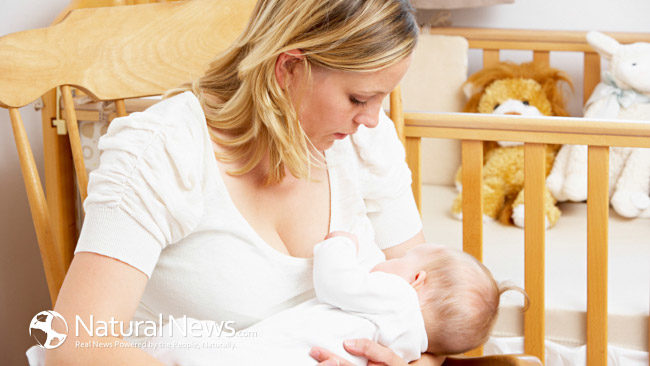Surprisingly in 2016 this is still a question for many moms to be. Free and limitless exposure to information is not enough to convince parents how to handle new situations.
The first attempt to make a milk blend that human babies can consume and stay alive can be sought back in 1800’s, with disastrous effects however. Advances in nutrition, research and technology the following years have allowed big companies to produce formulas claiming to be very similar to mother’s milk (but not….starting from the fact that they are made up from cow’s milk). In the meanwhile, all these years people are bombarded with advertisements and misguidance and inevitably formula milk has become a habit for many generations of doctors and mothers. For some societies still today there is no alternative to formula milk!
However, we have to be smart. Research is releasing tons of evidence showing that breastfeeding is the norm; you have to do it in order to bring up healthy children, while formulas cannot be even compared to human milk for a thousand of reasons.
In January, 2016 Lancet held a symposium “Breastfeeding: achieving the new normal” (after so many decades that we have achieved the paranormal I would add). Here are the most important points in my view out of the very interesting talks by distinguished scientists (http://www.thelancet.com/series/breastfeeding).
- The deaths of 823 000 children and 20 000 mothers each year could be averted through universal breastfeeding, along with economic savings of US$300 billion.
- Fewer infections, increased intelligence, probably protection against overweight and diabetes, and cancer prevention for mothers.
- If breastfeeding did not already exist, someone who invented it today would deserve a dual Nobel Prize in medicine and economics.
- Breastfeeding is a child’s first inoculation against death, disease, and poverty, but also their most enduring investment in physical, cognitive, and social capacity.
- The marketing of breastmilk substitutes negatively affects breastfeeding: global sales in 2014 of US$44·8 billion show the industry’s large, competitive claim on infant feeding.
- Not breastfeeding is associated with lower intelligence and economic losses of about $302 billion annually or 0·49% of world gross national income.
- Breastfeeding provides short-term and long-term health and economic and environmental advantages to children, women, and society.
- This is not about individual mothers either succeeding or failing. This is not about one lobby group winning over another; it´s not about our individual comfort zone or fashion; it´s about the survival and health of women and children today and in future generations.
Nevertheless, I can find some reasons why women may not breastfeed or breastfeed for a while or breastfeed the wrong way and finally quit.
Medical community
- Lack of trained doctors and nurses in breastfeeding/ lack of breastfeeding friendly hospitals as a consequence
- As Dr. Jack Newman has spotted: Misconceptions / reluctance of the medical community to recognize and resolve difficulties that the breastfeeding mother is facing or even medical conditions that obstruct smooth breastfeeding (e.g. tongue ties)
- Intended misguidance from pediatricians and other specialists
Parents/ Society
- Lack of proper information/ misconceptions (e.g. faulty beliefs from previous generations, inappropriate in front of others)
- Lack of love and solidarity from intimate persons to mother (esp. husband)
- Unwillingness of the mother because of trend, discomfort, pain, highly demanding process
- Illness of the mother or baby including psychological conditions (e.g. postpartum depression)
- Decreased milk production (this includes various aetiologies but it is up to a 5% worldwide)
- Job requirements (e.g. women are forced to go back to work very quickly after giving birth, not given equal opportunities if they decide to have children, career seekers)
I would suggest therefore, that if a mother is determined to breastfeed it is better to seek for a practitioner and a hospital that suit her needs and learn as much as possible concerning breastfeeding prior to giving birth. Finally, I would say “Let’s breastfeed” not because all scientific reasons makes absolute sense, but because breastfeeding is the most amazing bonding experience a mom will ever have with her child.





